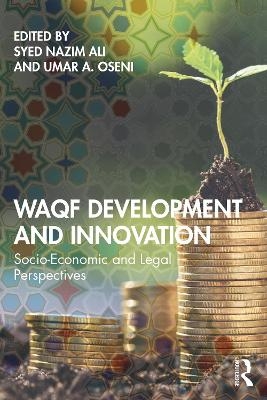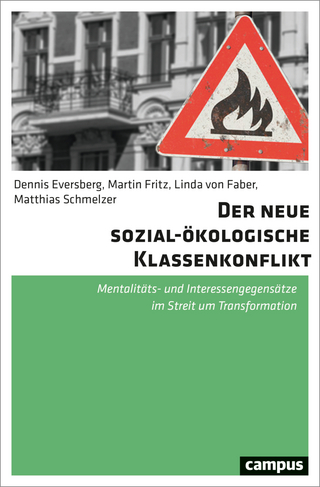
Waqf Development and Innovation
Routledge (Verlag)
978-0-367-74477-9 (ISBN)
Waqf is one of the most potent socio-economic tools for reducing public sector deficit and breaking the chain of intergenerational poverty. Providing a high-level discussion on waqf development and innovation within the context of modern socio-economic and legal developments, this book examines the importance and potentials of waqf and the issues relating to its legal and regulatory framework.
The research delivers future directions for countries that plan to explore this socio-economic institution. Readers and policymakers will be able to replicate successful experiments and learn from some failed initiatives to seek alternative funding platforms to support the fiscal policies of developing countries. The volume discusses the relevance and novel application of waqf in the modern economic system and social development, it reviews applicable laws and regulations pertaining to waqf and trust laws and examines critical, cross-country case studies and experiences.
Setting an agenda for further researchers in the field of waqf, this comprehensive high-level analysis, with case studies from leading jurisdictions across the world, is a key resource for researchers, policymakers and institutions interested in charitable endowments, Islamic finance, and social finance.
Syed Nazim Ali is the Director, Research Division and Director of Center for Islamic Economics and Finance at the College of Islamic Studies, Hamad Bin Khalifa University (HBKU). Prior to joining HBKU, he was the Executive Director (Acting) of the Islamic Legal Studies Program (2010–2013) at Harvard Law School and has been the Founding Director of the Islamic Finance Project at Harvard University since its establishment in 1995. Umar A. Oseni is currently Chief Executive Officer, International Islamic Liquidity Management Corporation (IILM), a multilateral organization. He earlier served as Acting Chief Executive Officer, Executive Director, and General Counsel of the IILM. He was a Visiting Fellow at the Islamic Legal Studies Program of the Harvard Law School in the United States and has published widely in issues of Islamic finance law and regulation.
Part I: Introduction 1. Waqf Development and Innovation: An Introduction Umar A. Oseni and Syed Nazim Ali Part II: Development and Innovation 2. The Significance of Waqf and the Experience of Charitable Organizations in Socio-Economic Development Nasim Shah Shirazi 3. Waqf and Human Capital Murat Çizakça 4. The Activation of the Waqf Role in Sustainable Development Abdelrahman Yousri Abdelrahman 5. Integrating Waqf and Islamic Finance: Creating Synergies for Social Impact Habib Ahmed 6. New Frontiers for Cash-Waqf Models for Socio-Economic Development Magda Ismail Abdel Mohsin 7. The Shariah Recognition of Cryptocurrencies and Their Usability for Waqf Abdulazeem Abozaid and Saqib Hafiz Khateeb PART III: Legal and Regulatory Issues 8. The Place of Waqf in General Principles of Trusts Law Ilias Bantekas 9. The Impact of Charitable Trusts Law on the Society Nasser Al Taweel 10. The Need for an Effective Legal and Regulatory Framework for Cash Waqf Abdullahi S. Ishola and Umar A. Oseni Part IV: Selected Case Studies 11. Awqaf Properties and Their Development in Eastern Europe: The Case of Bosnia and Herzegovina Velid Efendić, Alija Avdukić and Mensud Bisić 12. Waqf Development in India Mohammed Ali Shariff and Zainab Fida Ahsan 13. Waqf Development in Indonesia: Current Landscape and Future Trends Hidayatul Ihsan 14. Waqf in Iran: an Overview of Historical Roots and Current Trends Amin Mohseni-Cheraghlou, Ramezan Ali Marvi and Amir Kazemzadeh 15. Waqf Development in Malaysia Mohamad Akram Laldin, Sharifah Zubaidah Syed Abdul Kader and Fares Djafri 16. Case Studies of Awqaf Properties and their Development in Morocco Dalal Aassouli 17. Waqf Development in Nigeria: Issues and Challenges Abdulqadir Ibrahim Abikan and Abdullahi Saliu Ishola 18. Case Studies of Waqf in Pakistan Muhammad Zubair Abbasi
| Erscheinungsdatum | 01.12.2021 |
|---|---|
| Zusatzinfo | 12 Tables, black and white; 16 Line drawings, black and white; 16 Illustrations, black and white |
| Verlagsort | London |
| Sprache | englisch |
| Maße | 156 x 234 mm |
| Gewicht | 390 g |
| Themenwelt | Geisteswissenschaften ► Religion / Theologie |
| Sozialwissenschaften ► Soziologie ► Spezielle Soziologien | |
| Wirtschaft ► Betriebswirtschaft / Management ► Planung / Organisation | |
| Wirtschaft ► Volkswirtschaftslehre | |
| ISBN-10 | 0-367-74477-5 / 0367744775 |
| ISBN-13 | 978-0-367-74477-9 / 9780367744779 |
| Zustand | Neuware |
| Informationen gemäß Produktsicherheitsverordnung (GPSR) | |
| Haben Sie eine Frage zum Produkt? |
aus dem Bereich


